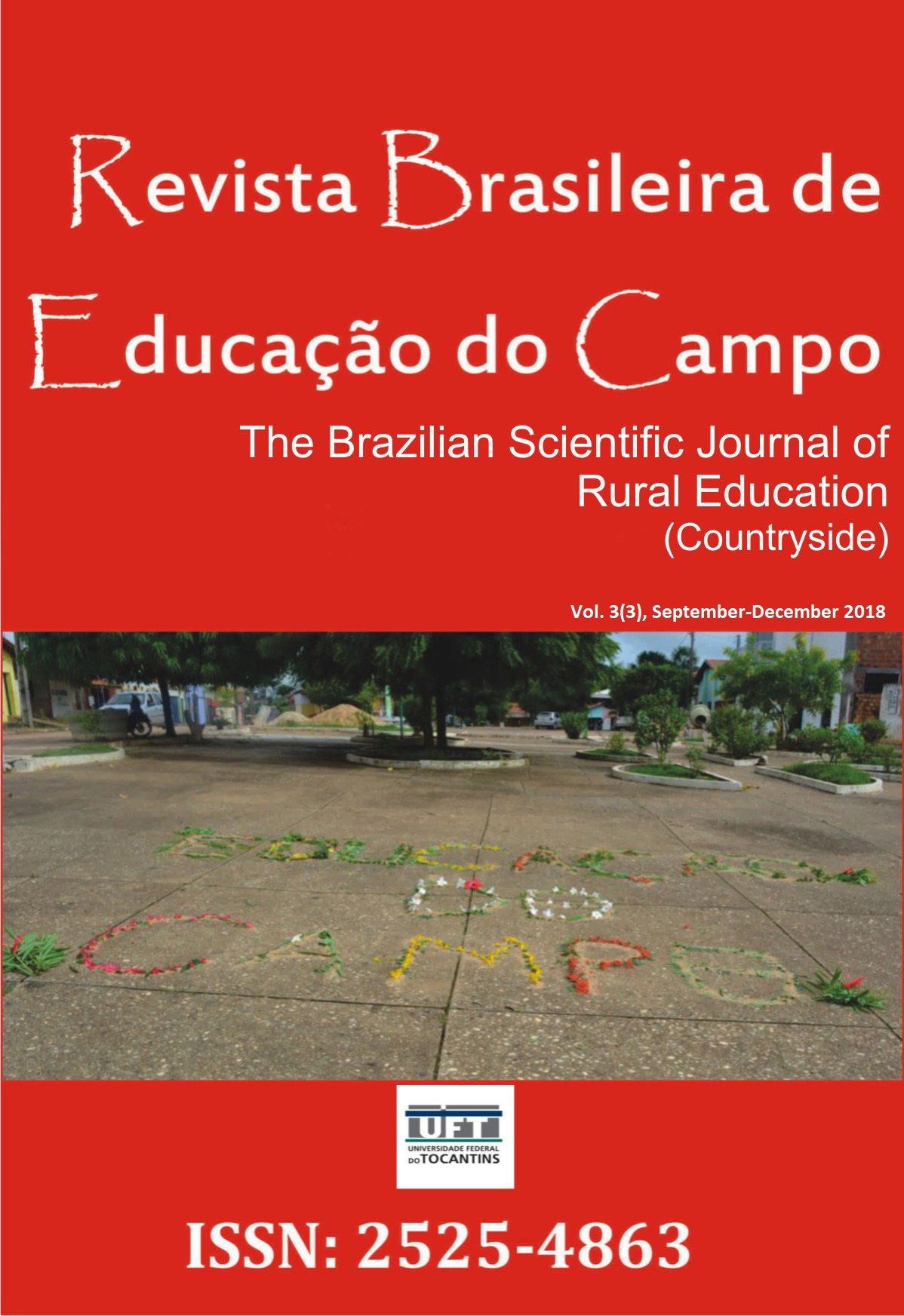Rural Education: a proposal of teacher training for multisseries classes in wheel format
DOI:
https://doi.org/10.20873/uft.2525-4863.2018v3n3p1084Abstract
ABSTRACT. This article presents a section of the research of professional masters, of the line of Formation of Educational Managers, that studies the education of the countryside and the plurality existing in the school context, presenting like product of intervention a proposal of continuous formation in format of wheel of conversation about of the theme: pedagogical experiences shared by teachers working in multi-series rooms in the municipality of Eldorado/SP. During the process of analysis of the school context object of this work, information collected from interviews with teachers who work in multi-series rooms were considered for the elaboration of the proposal of training in wheel as a space of sharing and collaboration, which, enhances interaction and dialogue. Through this research, it is argued that the talk wheel as a proposal for teacher training makes it possible to learn to record the planning and action of wheel procedures and the preparation of diary, which can be considered salutary for the development of proposals associated with inclusion demands typical of rural schools.
Downloads
Veröffentlicht
Zitationsvorschlag
Ausgabe
Rubrik
Lizenz
Creative Commons Attribution License
Creative Commons Attribution License
Proposal for Copyright Notice Creative Commons
1. Policy Proposal to Open Access Journals
Authors who publish with this journal agree to the following terms:
A. Authors retain copyright and grant the journal right of first publication with the work simultaneously licensed under the Creative Commons Attribution License that allows sharing the work with recognition of its initial publication in this journal.
B. Authors are able to take on additional contracts separately, non-exclusive distribution of the version of the paper published in this journal (ex .: publish in institutional repository or as a book), with an acknowledgment of its initial publication in this journal.
C. Authors are permitted and encouraged to post their work online (eg .: in institutional repositories or on their website) at any point before or during the editorial process, as it can lead to productive exchanges, as well as increase the impact and the citation of published work (See the Effect of Open Access).














